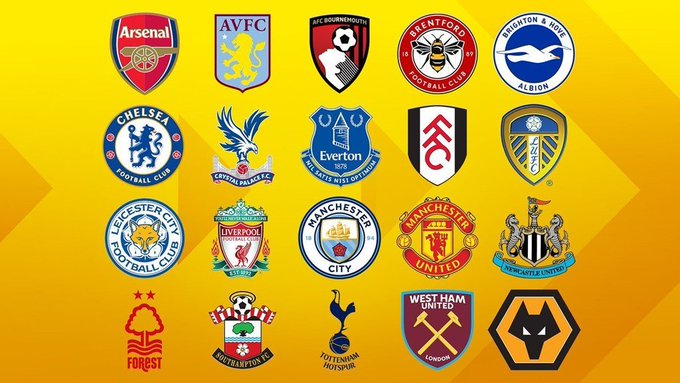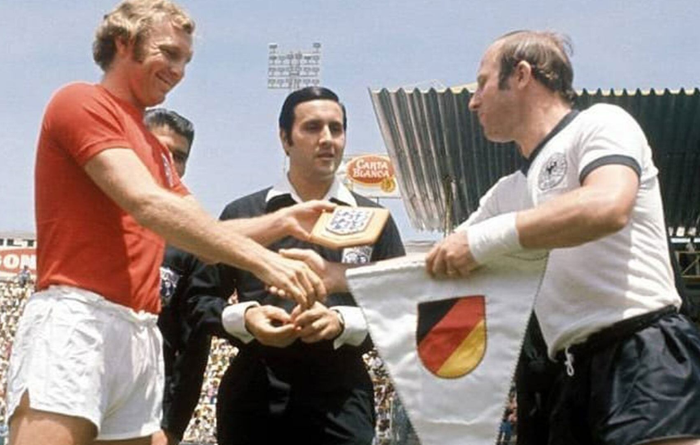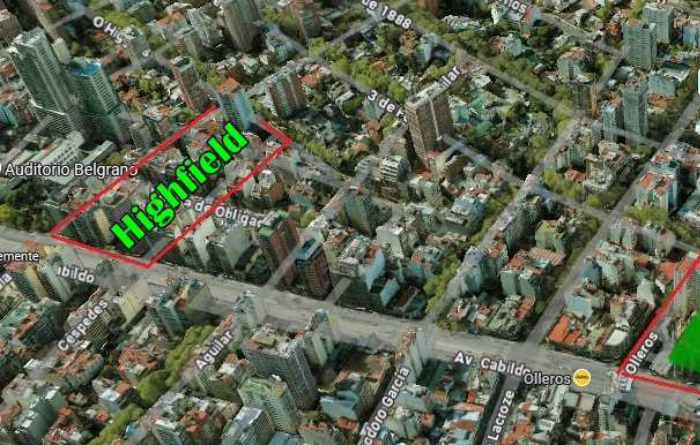por Augusto Vaello, socio del CIHF
Los aficionados del fútbol que seguimos la liga originaria de este deporte nos encontramos que la gran mayoría utiliza los nombres, generalmente, de la ciudad de origen y a continuación otra palabra, donde las más conocidas son United, City, Town, County, Wanderers, Rovers y Rangers. Y en menor medida Albion y North End.
Veamos el origen de cada una de las palabras y un listado de los clubes hasta la octava categoría inclusive de la pirámide del futbol inglés.
Dicha pirámide está formada de la siguiente manera (al comienzo de la temporada 23/24):
Nivel I – Premier League – 20 equipos
Nivel II – Championship – 24 equipos
Nivel III – League One – 24 equipos
Nivel IV – League Two – 24 equipos
Nivel V – National League – 24 equipos
Nivel VI – National League North – 24 equipos
National League South– 24 equipos
Nivel VII – Northern Premier League – 22 equipos
Isthmian League Premier Division – 22 equipos
Southern League Premier Central – 22 equipos
Southern League Premier South – 22 equipos
Nivel VIII – Northern Premier League East – 20 equipos
Northern Premier League West – 20 equipos
Northern Premier League Midlands – 20 equipos
Isthmian League NorthDivision – 20 equipos
Isthmian League South Central Division – 21 equipos
Isthmian League South East Division – 20 equipos
Southern League Central Division– 19 equipos
Southern League South Division – 20 equipos
Los niveles I a IV son manejados por la EFL (English Football League) y del nivel 5 en adelante por la FA (Football Association).
CITY – TOWN – COUNTY – BOROUGH
En principio esas 4 palabras pueden significar casi lo mismo pero no es así. Según la página web https://www.differencebetween.net
“A city is created by any population that has their own system of governing and a semblance of a legal system. Cities lie within a county, within a state. A county is geographically created for political purposes within a state”.
Como podemos ver, una ciudad (City) está dentro de un condado (County), nuestro equivalente sería un municipio o departamento.
De la misma página podemos encontrar la diferencia entre City y Town:
“Cities and towns are differentiated primarily by an area’s demography and its geography. In simple terms, cities are larger dwelling places than towns. Cities cover a wider area than towns and as cities advance, they may sometimes incorporate or merge with surrounding areas. Towns on the other hand do not generally expand into other areas in the same way as cities”.
En este caso es un poco mas confusa la diferencia, pero podemos ver que una ciudad (City) está mejor organizada y es mayor que un pueblo (Town).
Otra diferencia a tener en cuenta y que también a veces es confusa es entre Borough y Town.
“A town is an urban area with usually one central hub (town centre). A borough depends on the country. Here in the UK a borough is level of local government that covers an area of varying sizes. Originally boroughs where like cities ie towns that had a level of status above the norm, though a boroughs have always been of lower status than a city but higher than an ordinary town (non-city or borough towns were just part of a county until the 1880s and then they became Urban Districts)”.
Por lo visto la gran mayoría de los clubes ingleses, como veremos, caen dentro de una de estas definiciones y están representando a su lugar de origen dentro del futbol.
Town (95 equipos)
Aldershot Town (V) / Alfreton Town (VI) / Ashford Town (VIII)
Basingstoke Town (VII) / Beaconsfield Town (VII) / Beckenham Town (VIII)
Bedford Town (VIII) / Belper Town (VIII) / Biggleswade Town (VIII)
Billericay Town (VII) / Bognor Regis Town (VII) / Brackley Town (VI)
Bracknell Town (VII) / Braintree Town (VI) / Brentwood Town (VIII)
Bridlington Town (VIII) / Brighouse Town (VIII) / Burgess Hill Town (VIII)
Bury Town (VIII) / Chatham Town (VII) / Cheltenham Town (III)
Chertsey Town (VIII) / Chippenham Town (VI) / Cirencester Town (VIII)
Cleethorpes Town (VIII) / Coalville Town (VII) / Coleshill Town (VIII)
Corby Town (VIII) / Crawley Town (IV) / Didcot Town (VII)
Dorchester Town (VII) / East Grinstead Town (VIII) / Enfield Town (VII)
Exmouth Town (VIII) / Fleetwood Town (III) / Frome Town (VIII)
Grantham Town (VIII) / Grimsby Town (IV) / Halesowen Town (VII)
Halifax Town (V) / Hanley Town (VIII) / Hanwell Town (VII)
Harborough Town (VIII) / Harrogate Town (IV) / Hebburn Town (VIII)
Hednesford Town (VIII) / Hemel Hempstead Town (VI) / Hertford Town (VIII)
Hitchin Town (VII) / Huddersfield Town (II) / Hungerford Town (VII)
Hythe Town (VIII) / Ilkeston Town (VII) / Ipswich Town (II)
Kettering Town (VII) / King’s Lynn Town (VI) / Leek Town (VIII)
Leighton Town (VIII) / Littlehampton Town (VIII) / Lowestoft Town (VIII)
Luton Town (I) / Lye Town (VIII) / Malvern Town (VIII)
Mansfield Town (IV) / Matlock Town (VII) / Melksham Town (VIII)
Merthyr Town (VII) / Morpeth Town (VII) / Nantwich Town (VIII)
Newcastle Town (VIII) / Northampton Town (III) / Poole Town (VII)
Potters Bar Town (VII) / Royston Town (VII) / Rugby Town (VIII)
Sevenoaks Town (VIII) / Shrewsbury Town (III) / Slough Town (VI)
Spennymoor Town (VI) / St Ives Town (VII) / Stockton Town (VIII)
Stowmarket Town (VIII) / Stratford Town (VII) / Sutton Coldfield Town (VIII)
Swindon Town (IV) / Taunton Town (VI) / Thatcham Town (VIII)
Tiverton Town (VII) / Warrington Town (VI) / Whitby Town (VII)
Wimborne Town (VII) / Witham Town (VIII) / Worksop Town (VII)
Yate Town (VIII) / Yeovil Town (VI)
City (27 Equipos)
Bath City (VI) / Birmingham City (II) / Bradford City (IV)
Bristol City (II) / Cambridge City (VIII) / Cardiff City (II)
Chelmsford City (VI) / Chichester City (VIII) / City of Liverpool (VIII)
Coventry City (II) / Exeter City (III) / Gloucester City (VI)
Hull City (II) / Lancaster City (VII) / Leicester City (II)
Lincoln City (III) / Manchester City (I) / Norwich City (II)
Oxford City (V) / Salford City (IV) / St Albans City (VI)
Stoke City (II) / Swansea City (II) / Truro City (VI)
Welwyn Garden City (VIII) / Winchester City (VII) / York City (V)
Borough (9 equipos)
Eastbourne Borough (VI) / Grimsby Borough (VIII) / Gainsborough Trinity (VII)
Gosport Borough (VII) / Hampton & Richmond Borough (VI) / Haringey Borough (VII)
Harrow Borough (VII) / Loughborough Dynamo (VIII) / Nuneaton Borough (VII)
County (4 equipos)
Derby County (III) / Newport County (IV) / Notts County (IV)
Stockport County (IV)
UNITED
Otra gran mayoría de los equipos utilizan la palabra United. En la página web https://www.theanswerbank.co.uk/ podemos encontrar la utilización de la palabra United en una gran mayoría de clubes ingleses:
“United means that all the members have decided to ‘unite’ under the same banner and are committed to the same cause”.
Significa que todos los miembros deciden unirse bajo la misma bandera y están comprometidos en la misma causa.
United (45 equipos)
Ascot United (VIII) / Ashford United (VIII) / Ashton United (VII)
Aylesbury United (VIII) / Banbury United (VI) / Basford United (VII)
Basildon United (VIII) / Bedworth United (VIII) / Boston United (VI)
Cambridge United (III) / Carlisle United (III) / Chesham United (VII)
Colchester United (IV) / East Thurrock United (VIII) / Ebbsfleet United (V)
Evesham United (VIII) / FC United of Manchester (VII) / Felixstowe & Walton United (VIII)
Hartlepool United (V) / Hayes & Yeading United (VII) / Hyde United (VII)
Leeds United (II) / Long Eaton United (VII) / Maidenhead United (V)
Maidstone United (VI) / Manchester United (I) / Marske United (VII)
Newcastle United (I) / Ossett United (VIII) / Oxford United (III)
Peterborough United (III) / Redditch United (VII) / Rotherham United (II)
Scunthorpe United (VI) / Sheffield United (I) / Sheppey United (VIII)
Southend United (V) / Spalding United (VIII) / Sutton United (IV)
Telford United (VII) / Thame United (VIII) / Torquay United (VI)
Welling United (VI) / West Ham United (I) / Westbury United (VIII)
WANDERERS – ROVERS – RANGERS
Luego aparecen 3 palabras muy relacionadas entre si, especialmente en los primeros clubes de Futbol: Wanderers, Rovers y Rangers.
Nuevamente la página web https://www.theanswerbank.co.uk da una definición de la tres palabras:
“Wanderers are people who roam around from place to place. The first winners of the FA Cup, in 1872, were called simply the Wanderers, a name the club adopted in 1864 after moving from east London to Battersea Park in south London. But the name also conveys the rather romantic sense of a group of travelling gentlemen who play for pleasure rather than to win – a very English sentiment, particularly in the late 19th century when most clubs were formed”.
“Rangers, in common with wanderers, are people who move around a lot, particularly in search of plunder, which in football means trophies and glory. The term ‘ranger’ is also used officially in military circles, giving the sense of order and precision”.
“Again, as with wanderers and rangers, Rovers has connotations of perpetual travelling and restlessness, though its meaning has exciting links to pirates. This romantic inference means that teams of ‘rovers’ will travel great distances in search of glory”.
Todas las definiciones hacen alusión a gente que no se queda en un lugar fijo sino que se mueve de lugar en lugar.
Wanderers (6 equipos)
Bolton Wanderers (III) / Cray Wanderers (VII) / Dorking Wanderers (V)
Ipswich Wanderers (VIII) / Wolverhampton Wanderers (I) / Wycombe Wanderers (III)
Rovers (11 equipos)
Barton Rovers (VIII) / Blackburn Rovers (II) / Bristol Rovers (III)
Doncaster Rovers (IV) / Forest Green Rovers (IV) / Gresley Rovers (VIII)
Kempston Rovers (VIII) / Paulton Rovers (VIII) / Sutton Common Rovers (VIII)
Tranmere Rovers (IV) / Willand Rovers (VIII)
Rangers (4 equipos)
Concord Rangers (VII) / Queens Park Rangers (II) / Stafford Rangers (VII)
Winterton Rangers (VIII)
ALBION
Otra de las palabras que encontramos es Albion, que según la página web antes mencionada, la define:
“Albion is a Classical name for Britain, much used in poetry in the Romantic period, and continuing to be popular throughout the 19th century, a time of strong nationalist sentiment. Its strangest use must be in the name of the team from the small town of Coatbridge in Scotland, which calls itself Albion Rovers. This is a bit like being called City United or County Athletic”.
Como se puede ver, es el nombre adoptado románticamente para definir Bretaña, pero su uso es visto mayormente en equipos escoceses.
Albion (4 equipos)
Brighton & Hove Albion (I) / Burton Albion (III) / West Bromwich Albion (II)
Witton Albion (VIII)
ATHLETIC
Y por último tenemos la palabra Athletic, que según su definición en la página web:
“Athletic has nothing to do with athletics per se, but is meant to convey a sense of fitness and strength”.
Tiene que ver su definición con que está destinado a transmitir una sensación de aptitud física y fuerza.
Athletic (9 equipos)
Carshalton Athletic (VII) / Charlton Athletic (III) / Dover Athletic (VI)
Grays Athletic (VIII) / Kidsgrove Athletic (VIII) / Larkhall Athletic (VIII)
Oldham Athletic (V) / Scarborough Athletic (VI) / Wigan Athletic (III)



